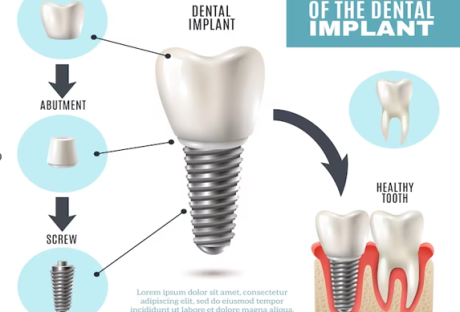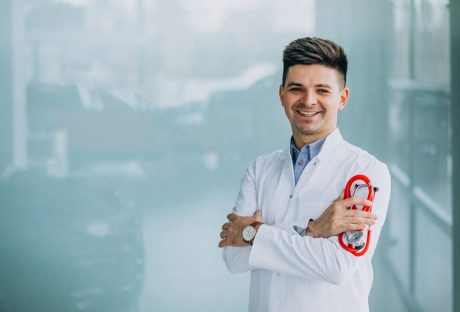Accidents can happen when people least expect them, and their aftermath can leave them not only physically injured but also emotionally scarred. The journey to recovery from an accident is not just about healing the body; it’s also about addressing the psychological trauma that often accompanies such incidents. This article will delve into the emotional aspect of recovering from accidents and explore how individuals can overcome trauma and move forward with their lives. Additionally, it’ll discuss the role of an accident and injury lawyer in providing support during the legal process.
Understanding The Emotional Impact Of Accidents
Accidents can have a profound impact on your emotions, affecting your mental well-being in various ways. Here are some common emotional responses that individuals may experience after an accident:
Shock and Disbelief: Immediately following an accident, many people experience a sense of shock and disbelief. It’s as if their world has been turned upside down, and they struggle to come to terms with what has just happened.
Fear and Anxiety: Fear of the unknown, anxiety about the future, and concerns about the extent of their injuries can overwhelm accident victims. These emotions can lead to sleep disturbances and heightened stress levels.
Depression: Chronic pain, disability, and the disruption of one’s daily life can trigger feelings of depression. The loss of independence and the inability to engage in activities they once enjoyed can contribute to a sense of hopelessness.
Anger and Frustration: Accidents can leave individuals feeling angry, especially if they believe the incident was preventable or caused by someone else’s negligence. This anger can further complicate the recovery process.
Guilt and Self-Blame: Some accident survivors may blame themselves for the incident, even if it was not their fault. This self-blame can be emotionally draining and hinder their recovery.
Post-Traumatic Stress Disorder (PTSD): In more severe cases, individuals may develop PTSD, a condition characterized by flashbacks, nightmares, and intense anxiety related to the accident.
Coping Strategies For Emotional Recovery
Recovering from the emotional trauma of an accident is a crucial step in the overall healing process. Here are some strategies that can help individuals overcome the psychological hurdles:
Seeking Professional Help: It’s essential to reach out to mental health professionals who specialize in trauma and accident-related issues. Therapy and counseling can provide valuable tools to manage anxiety, depression, and PTSD.
Building a Support Network: Lean on friends and family for emotional support. Talking to loved ones can provide comfort and a sense of connection during difficult times.
Staying Informed: Understanding the medical and legal aspects of the accident can reduce uncertainty and anxiety. Consult with medical professionals to have a clear picture of your injuries and recovery process.
Self-Care: Prioritize self-care by getting adequate rest, eating well, and engaging in gentle physical activity when possible. Small acts of self-compassion can make a big difference in emotional recovery.
Mindfulness and Relaxation Techniques: Practices such as mindfulness meditation and deep breathing exercises can help manage stress and anxiety.
The Role Of Accident And Injury Lawyers
While emotional recovery is paramount, dealing with the legal aspects of an accident is equally important. An accident and injury lawyer can play a crucial role in guiding accident victims through the complex legal process. Here’s how they can provide support:
Legal Expertise: Accident lawyers specialize in personal injury law and have a deep understanding of the legal complexities involved in accident cases. They can assess the situation, determine liability, and advise you on your rights.
Evidence Gathering: To create a compelling case on your side, attorneys can assist in gathering crucial information such as accident reports, witness testimony, and medical records.
Negotiation with Insurance Companies: Dealing with insurance companies can be daunting. Accident lawyers can negotiate with insurers to ensure you receive fair compensation for your injuries and losses.
Litigation Support: In cases where a settlement cannot be reached, accident lawyers can represent you in court and advocate for your rights in front of a judge and jury.
Peace of Mind: Knowing that you have a knowledgeable advocate on your side can provide peace of mind during a challenging time. This allows you to focus on your recovery while your lawyer handles the legal complexities.
Conclusion
Recovering from an accident is not just a physical journey; it’s also a psychological one. Understanding and addressing the emotional impact of accidents is crucial for individuals seeking to move forward with their lives. Seeking professional help, building a support network, and practicing self-care are essential steps in the emotional recovery process. By addressing both the emotional and legal aspects of recovery, individuals can better navigate the challenges that arise after an accident and take steps toward a brighter future.
Read More: Protect Your Rights Today With Domestic Violence Lawyers























